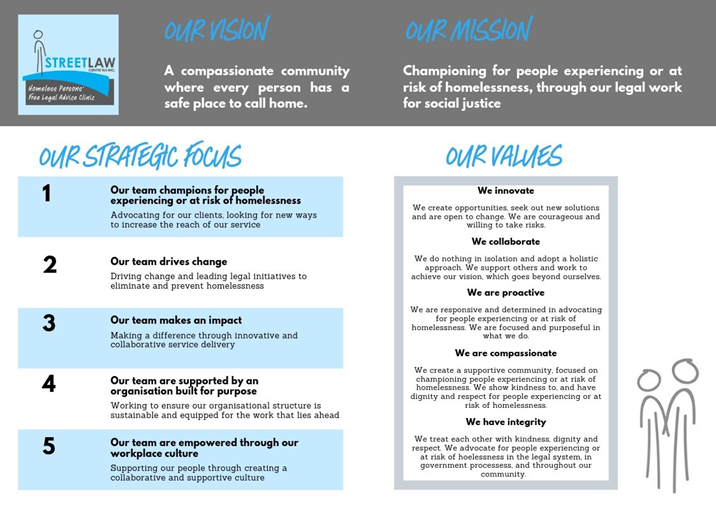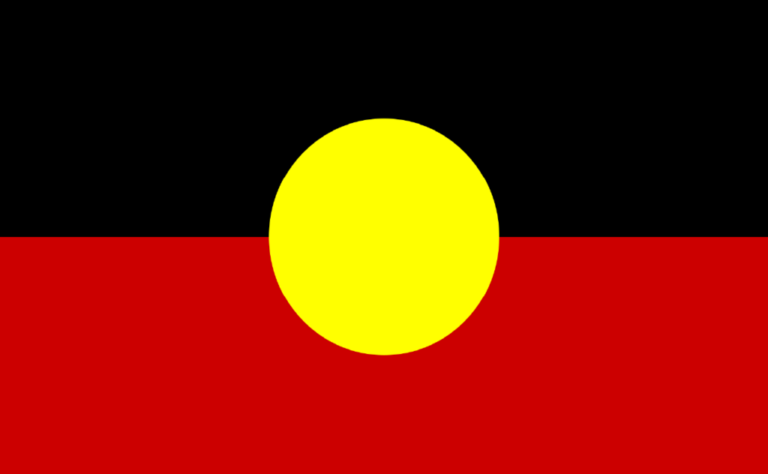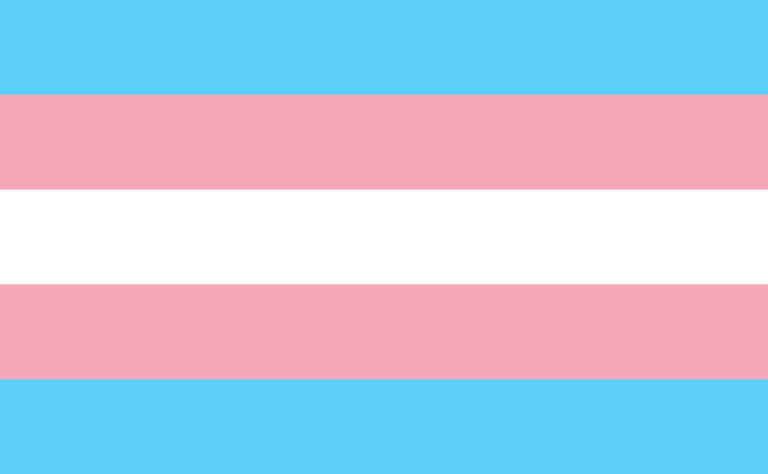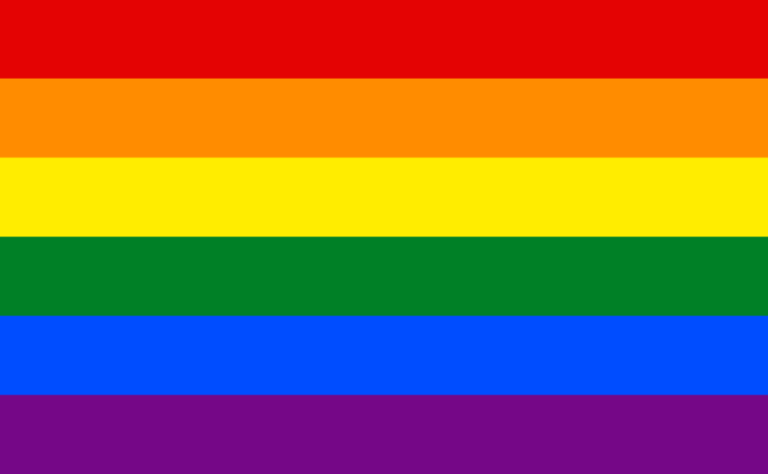Street Law provides access to free specialist legal services addressing the needs of people experiencing or who are at risk of homelessness. Although we are specialist in that we service a particular client group, the legal assistance we provide is generalist in nature. We are committed to promoting access to justice, equity and non-discrimination by offering free specialist legal services while also providing community legal education and lobbying for social justice and law reform.

Our client group
Street Law Centre provides services to people who are homeless, or at risk of homelessness. Therefore, a fundamental understanding of the issue of homelessness is imperative to providing the best service to our clients.

There are three tiers of homelessness based on the Chamberlain & McKenzie definition –
Primary homelessness: This type of homelessness includes those who are sleeping rough or are living in an improvised dwelling.
Secondary homelessness: This type of homelessness includes those who are staying with friends or relatives and with no other usual address and people staying specialist homelessness services.
Tertiary homelessness: This type of homelessness includes people living in boarding houses or caravan parks with no secure lease and no private facilities, both short and long term.
Homelessness essentially means that a person doesn’t have suitable accommodation alternatives and that their current living arrangements are inadequate, have no tenure, or they do not allow the person to have control of or access to space for social relations.
Homelessness is multi-faceted and affects different groups of people in diverse ways. Additionally, the legal issues that the homeless face are often complex in nature. What would normally be a simple problem to some is further complicated for a person sleeping rough as they often do not have the means or tools to manage the issue themselves. For example, understanding that a client may not have important documents such as identification because they have had it lost or stolen, or that they do not have the means to attend a court hearing because their priorities lay elsewhere (such as finding food or shelter for the day) is paramount when attending to their legal needs. Additionally, a simple task such as contacting a client is further complicated when they do not have a specific address or a mobile phone.
The causes and consequences of homelessness vary between groups such as families, young people, women escaping family and domestic violence, Aboriginal and Torres Strait Islander people, people experiencing substance misuse issues, people experiencing mental health problems, and so on.
Causes and consequences of homelessness can include –
- Family and domestic violence.
- Lack of affordable housing.
- Long-term unemployment.
- Mental health issues.
- Substance dependencies.
- Family/relationship breakdown.
- Social isolation.
- Sexual and/or physical abuse.
- Physical illness.
- Financial hardship.
- Structural impediments.
- Government Policy.
The stress and conditions of homelessness exacerbate existing issues and also cause further adverse consequences.
The legal clinics
Street Law meets clients at our ‘Outreach Legal Clinics’ at various locations around Perth. We do not see clients at our office. The legal clinics are held at the same place and time each week or fortnight, and take place at locations (‘host agencies’) already providing services to homeless or vulnerable members of the community.
The host agencies are Ruah, St Pats, Passages, Tranby and Karnany. Click here to view details






